Jefferies Adjusts Starbucks Corporation (NASDAQ:SBUX) Price Target
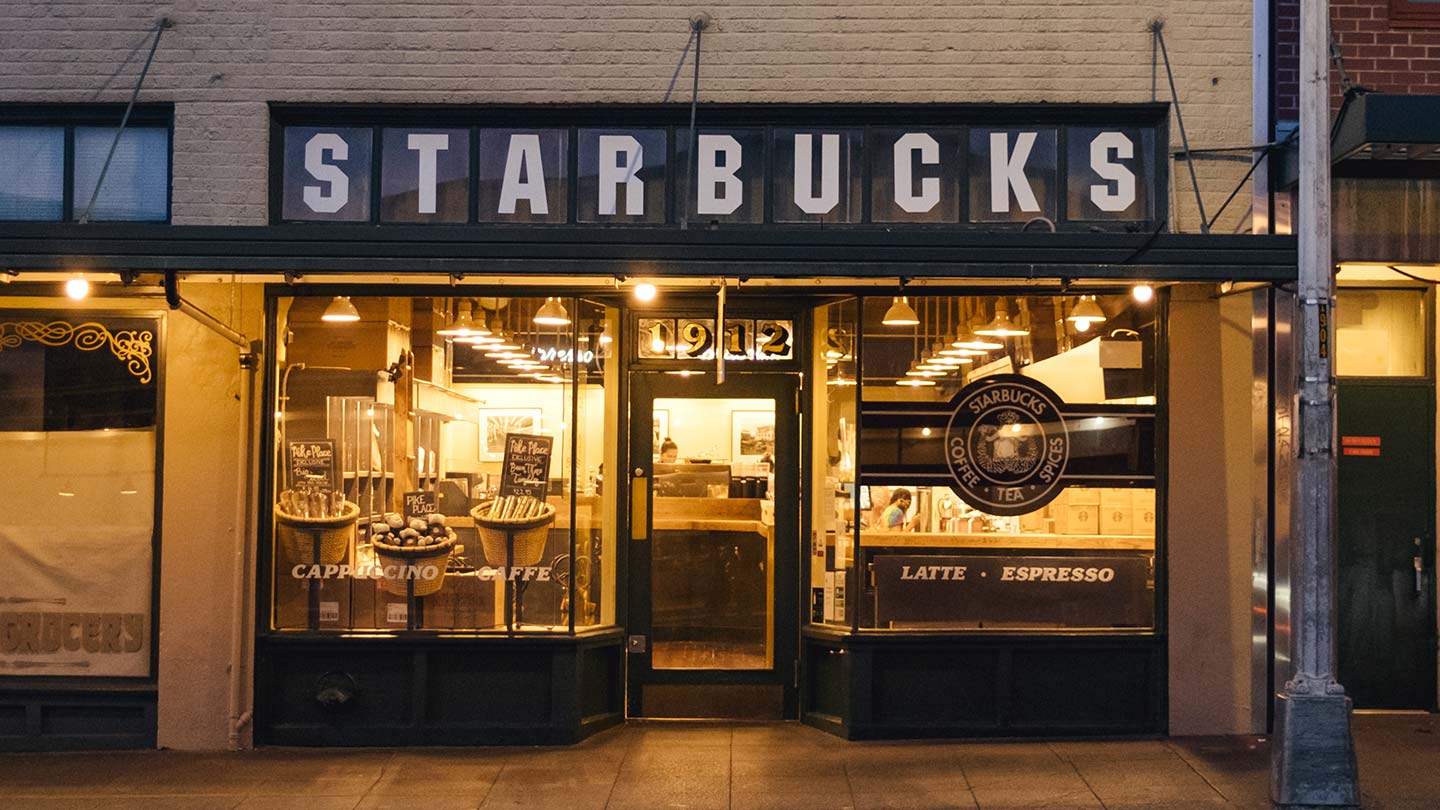
- Jefferies downgrades Starbucks Corporation (NASDAQ:SBUX) to 'Underperform' with a new price target of $76, indicating a bearish outlook.
- The appointment of Brian Niccol as CEO sparks optimism, driving a 22% surge in Starbucks' share price despite macroeconomic challenges and struggles in China.
- Despite the downgrade, broader market sentiment remains positive, with expectations of earnings growth in FY 2025 under Niccol's leadership.
Andy Barish of Jefferies has recently adjusted the price target for Starbucks Corporation (NASDAQ:SBUX) to $76, a notable decrease from its current trading price of $95.48. This adjustment represents a significant 20.4% downward revision, suggesting a bearish outlook on the company's stock. The announcement, made on September 23, 2024, and covered by StreetInsider, indicates a downgrade of Starbucks to 'Underperform'. This move by Jefferies reflects a cautious stance towards Starbucks' future performance in the market.
Starbucks, a global leader in coffee retail, has seen its share price surge by 22% following the news that Brian Niccol, the CEO of Chipotle, will be taking the helm as Starbucks' new chief executive. This leadership change has fueled optimism among investors, hinting at a potential turnaround focused on customer experience. Despite this positive momentum, Starbucks has faced challenges, including macroeconomic pressures and a struggling performance in its China operations. However, Niccol's proven track record is expected to spearhead a strategic revival in the United States, aiming to bolster Starbucks' position in the competitive coffee industry.
The stock's current valuation suggests it is modestly undervalued, with a bullish technical chart pointing towards promising future prospects. This assessment supports a buy rating on Starbucks' stock, especially with anticipations of earnings growth in FY 2025. Such optimism is grounded in the belief that Niccol's leadership could rejuvenate Starbucks' business strategy, potentially leading to improved financial performance and shareholder value.
Despite the recent downgrade by Jefferies, the broader market sentiment around Starbucks appears to be positive, as indicated by the stock's performance and investor reactions to the CEO transition. With a market capitalization of approximately $108.2 billion and a trading volume of about 7.72 million shares, Starbucks remains a heavyweight in the market. The stock's fluctuation between a yearly low of $71.55 and a high of $107.66 further illustrates the volatile nature of the market and the various factors influencing Starbucks' stock price.
In summary, while Jefferies' new price target for Starbucks reflects a cautious outlook, the company's recent leadership change and the optimistic investor sentiment suggest potential for a strategic turnaround. The anticipation of earnings growth in FY 2025, coupled with Brian Niccol's expertise, presents a compelling case for Starbucks' ability to navigate its current challenges and capitalize on future opportunities.
| Symbol | Price | %chg |
|---|---|---|
| MCD.BA | 18750 | -1.87 |
| FORE.JK | 510 | 0 |
| MAPB.JK | 1615 | -0.31 |
| FAST.JK | 605 | 0.83 |

UBS Adjusts Starbucks Price Target Amid Brand Pressures and Recovery Strategy
UBS raised its price target on Starbucks Corporation (NASDAQ:SBUX) to $95 from $90, maintaining a Neutral rating as the coffee chain navigates through a period of weakened traffic and mixed sales performance in its core U.S. market.
The firm noted that Starbucks continues to face headwinds from shifting consumer spending and growing brand perception challenges. However, UBS sees potential for improvement through the company’s “Back to Starbucks” strategy, which aims to reinvigorate domestic transactions and strengthen long-term earnings.
UBS analysts also dug into recent findings from their 2025 Global Coffee and QSR Surveys, which revealed that while Starbucks still enjoys strong brand loyalty and high marks on several key attributes, concerns around value and intensifying competition have dented customer traffic. These issues, UBS suggests, underscore the importance of Starbucks' current initiatives to restore growth and relevance in a crowded marketplace.
Overall, the slight price target boost reflects cautious optimism that strategic execution could gradually restore momentum—even if the path forward may be uneven.
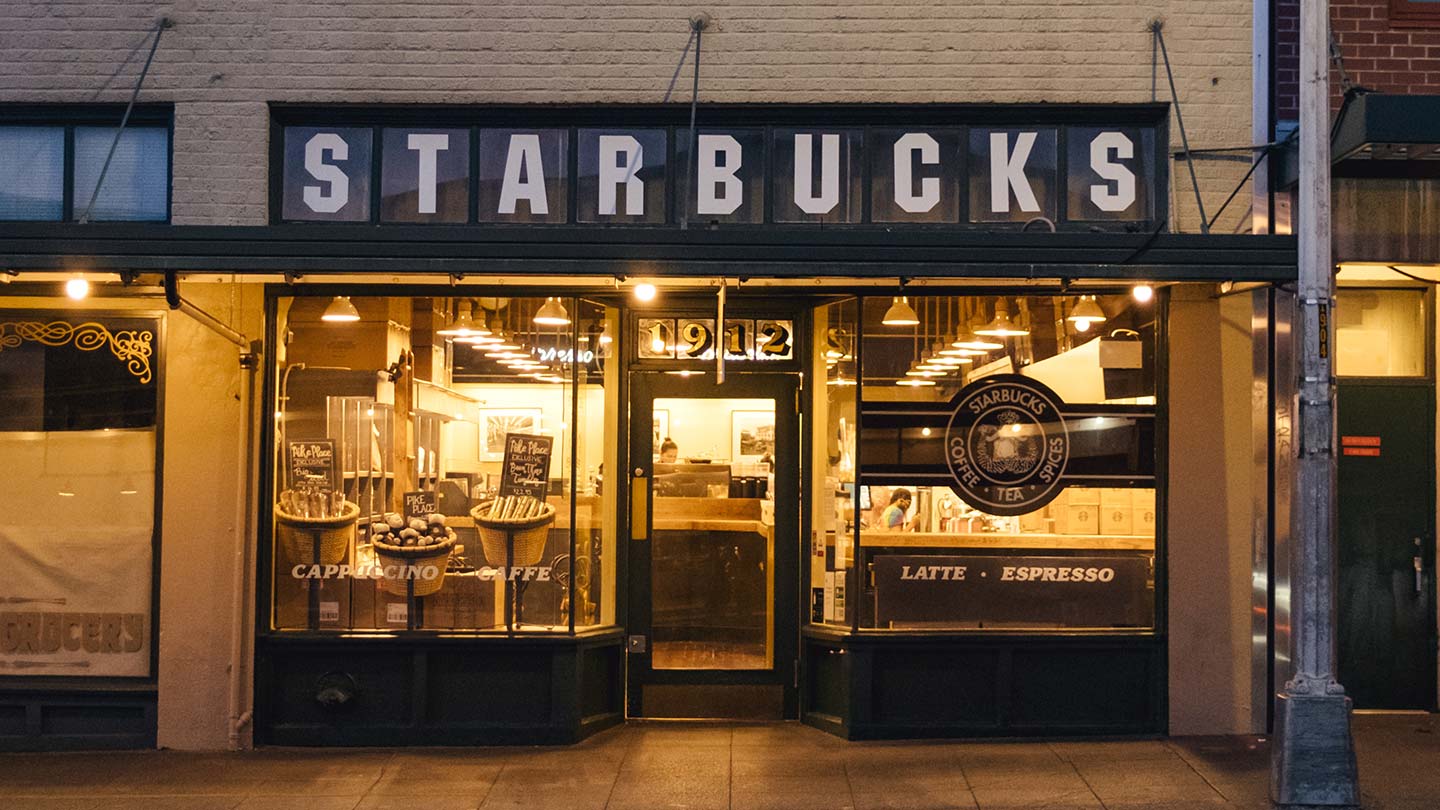
Starbucks Corporation's Market Position and Analyst Perspectives
- RBC Capital downgraded NASDAQ:SBUX from "Outperform" to "Sector Perform" due to concerns over growth prospects.
- TD Cowen's analysis indicates a decline in Starbucks' value and quality perceptions, potentially affecting its competitive edge.
- Starbucks' stock shows volatility with a current price of $84.45, reflecting a decrease and highlighting market challenges.
Starbucks Corporation, listed on the NASDAQ as SBUX, is a global coffeehouse chain known for its premium coffee and customer experience. The company operates thousands of stores worldwide, offering a variety of coffee beverages, teas, and snacks. Starbucks faces competition from other coffee chains and local cafes, which challenge its market position.
On May 29, 2025, RBC Capital downgraded Starbucks from an "Outperform" to a "Sector Perform" rating, as reported by Benzinga. At the time, the stock was priced at $83.81. This downgrade reflects a shift in the analyst's perspective on Starbucks' future performance, indicating potential concerns about the company's growth prospects.
TD Cowen's analyst has raised concerns about Starbucks' turnaround efforts, noting a decline in the company's value and quality perceptions compared to competitors. This analysis, based on exclusive data, suggests that customer dissatisfaction is growing, which could impact Starbucks' ability to maintain its competitive edge in the market.
Currently, Starbucks' stock price is $84.45, showing a decrease of $1.55, or approximately -1.80%. The stock has fluctuated between $83.70 and $85.71 during the trading day. Over the past year, it has reached a high of $117.46 and a low of $71.55, indicating significant volatility.
Starbucks has a market capitalization of approximately $95.97 billion, with a trading volume of 5,038,092 shares. These figures highlight the company's substantial presence in the market, but also underscore the challenges it faces in sustaining growth and customer satisfaction amidst increasing competition.
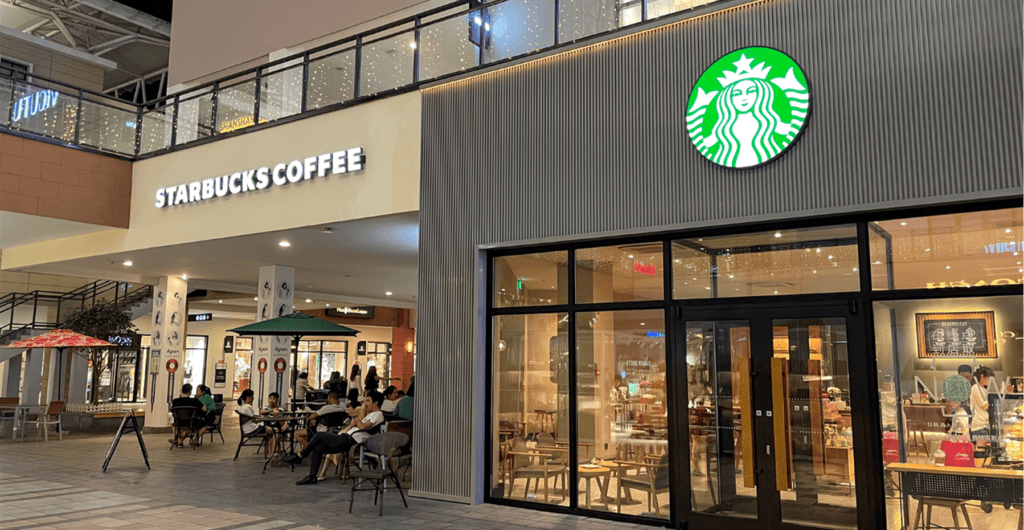
Starbucks Corporation (NASDAQ:SBUX) Faces Mixed Sentiments Amid Turnaround Efforts
- Andrew Charles from TD Securities sets a price target of $90 for Starbucks, indicating a potential increase of approximately 7.52% from its current price.
- Starbucks' current stock price shows a decrease, with a trading volume of 4.3 million shares on the NASDAQ:SBUX.
- Challenges in maintaining competitive edge and customer satisfaction could impact Starbucks' ability to achieve its price target and sustain market position.
Starbucks Corporation (NASDAQ:SBUX) is a global coffeehouse chain known for its premium coffee and beverages. Founded in 1971, the company has grown to become a leading player in the coffee industry, with thousands of locations worldwide. Starbucks competes with other major coffee brands like Dunkin' and McDonald's, striving to maintain its market position through innovation and customer experience.
On May 29, 2025, Andrew Charles from TD Securities set a price target of $90 for Starbucks, suggesting a potential increase of approximately 7.52% from its current price of $83.71. This target reflects optimism about the company's future performance despite recent challenges. However, an analyst from TD Cowen has raised concerns about Starbucks' turnaround efforts, noting a decline in value and quality perceptions compared to competitors.
The current stock price of Starbucks is $83.76, showing a decrease of 2.60% or $2.24. Today, the stock has fluctuated between $83.70 and $85.70. Over the past year, it has seen a high of $117.46 and a low of $71.55. This volatility indicates the market's mixed sentiment towards Starbucks' performance and future prospects.
Starbucks' market capitalization stands at approximately $95.18 billion, reflecting its significant presence in the industry. However, the report from TD Cowen suggests that the company is facing challenges in maintaining its competitive edge. Customers are reportedly dissatisfied with Starbucks' offerings, which could impact its ability to achieve the $90 price target set by Andrew Charles.
The trading volume for Starbucks today is 4.3 million shares on the NASDAQ exchange. This level of activity indicates investor interest in the stock, despite the concerns raised by TD Cowen. As Starbucks navigates its turnaround efforts, the company's ability to address customer dissatisfaction and improve its value and quality perceptions will be crucial in achieving its price target and sustaining its market position.
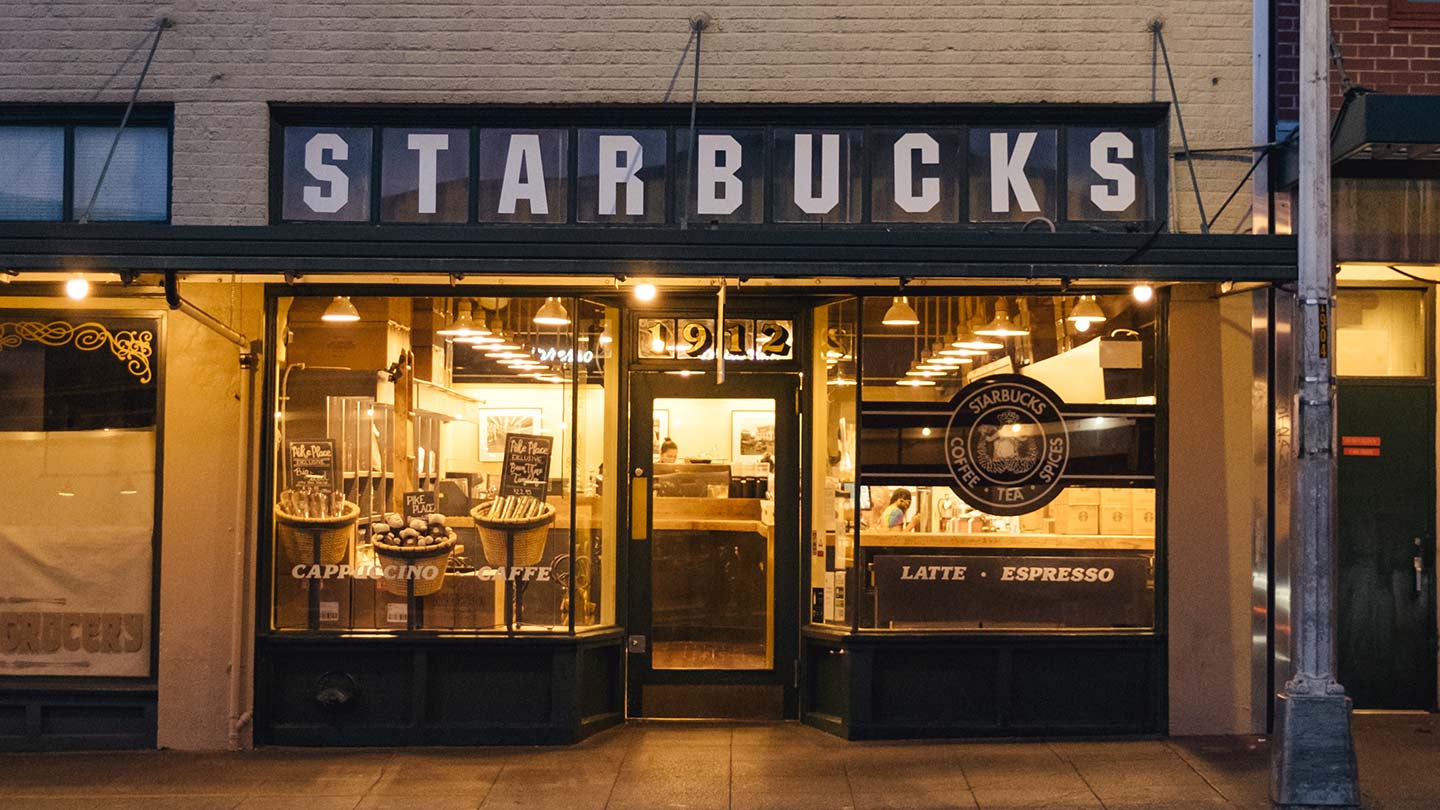
Starbucks Corporation (NASDAQ:SBUX) Price Target and Financial Overview
- Guggenheim's Gregory Francfort sets a new price target of $83 for Starbucks.
- Starbucks reports revenue of $8.76 billion, missing estimates, with adjusted EPS at $0.41.
- Increased competition and global tensions impact Starbucks' market position and future margin expansion forecasts.
Starbucks Corporation (NASDAQ:SBUX) is a global coffeehouse chain known for its premium coffee and customer experience. As of April 29, 2025, Guggenheim's Gregory Francfort set a price target of $83 for SBUX, while the stock traded at $84.85. This reflects a -2.18% difference from the target, as highlighted by Benzinga. Concerns include competition, rising costs, and global tensions.
Guggenheim's Francfort maintains a Neutral rating on Starbucks, lowering the price target from $95 to $83. Starbucks' recent financial results show revenue of $8.76 billion, missing the $8.86 billion estimate. Adjusted EPS was $0.41, below the $0.50 consensus. Despite a 2% increase in net revenue, global comparable store sales fell by 1%.
Starbucks faces increased competition from local brands like CHA, impacting its market position. The ongoing trade war and potential resistance to U.S. brands add to the challenges. Consequently, forecasts for margin expansion have been revised. The 2027 EBIT margins are now expected to improve by 150 basis points over 2025, down from the previous 270 basis points forecast.
The current stock price of $84.85 reflects a 1.13% increase. The stock has traded between $83.20 and $85.07 today. Over the past year, it reached a high of $117.46 and a low of $71.55. Starbucks' market capitalization stands at approximately $96.38 billion, with a trading volume of 12,015,174 shares on the NASDAQ.

Starbucks Corporation (NASDAQ:SBUX) Price Target and Financial Overview
- Guggenheim's Gregory Francfort sets a new price target of $83 for Starbucks.
- Starbucks reports revenue of $8.76 billion, missing estimates, with adjusted EPS at $0.41.
- Increased competition and global tensions impact Starbucks' market position and future margin expansion forecasts.
Starbucks Corporation (NASDAQ:SBUX) is a global coffeehouse chain known for its premium coffee and customer experience. As of April 29, 2025, Guggenheim's Gregory Francfort set a price target of $83 for SBUX, while the stock traded at $84.85. This reflects a -2.18% difference from the target, as highlighted by Benzinga. Concerns include competition, rising costs, and global tensions.
Guggenheim's Francfort maintains a Neutral rating on Starbucks, lowering the price target from $95 to $83. Starbucks' recent financial results show revenue of $8.76 billion, missing the $8.86 billion estimate. Adjusted EPS was $0.41, below the $0.50 consensus. Despite a 2% increase in net revenue, global comparable store sales fell by 1%.
Starbucks faces increased competition from local brands like CHA, impacting its market position. The ongoing trade war and potential resistance to U.S. brands add to the challenges. Consequently, forecasts for margin expansion have been revised. The 2027 EBIT margins are now expected to improve by 150 basis points over 2025, down from the previous 270 basis points forecast.
The current stock price of $84.85 reflects a 1.13% increase. The stock has traded between $83.20 and $85.07 today. Over the past year, it reached a high of $117.46 and a low of $71.55. Starbucks' market capitalization stands at approximately $96.38 billion, with a trading volume of 12,015,174 shares on the NASDAQ.
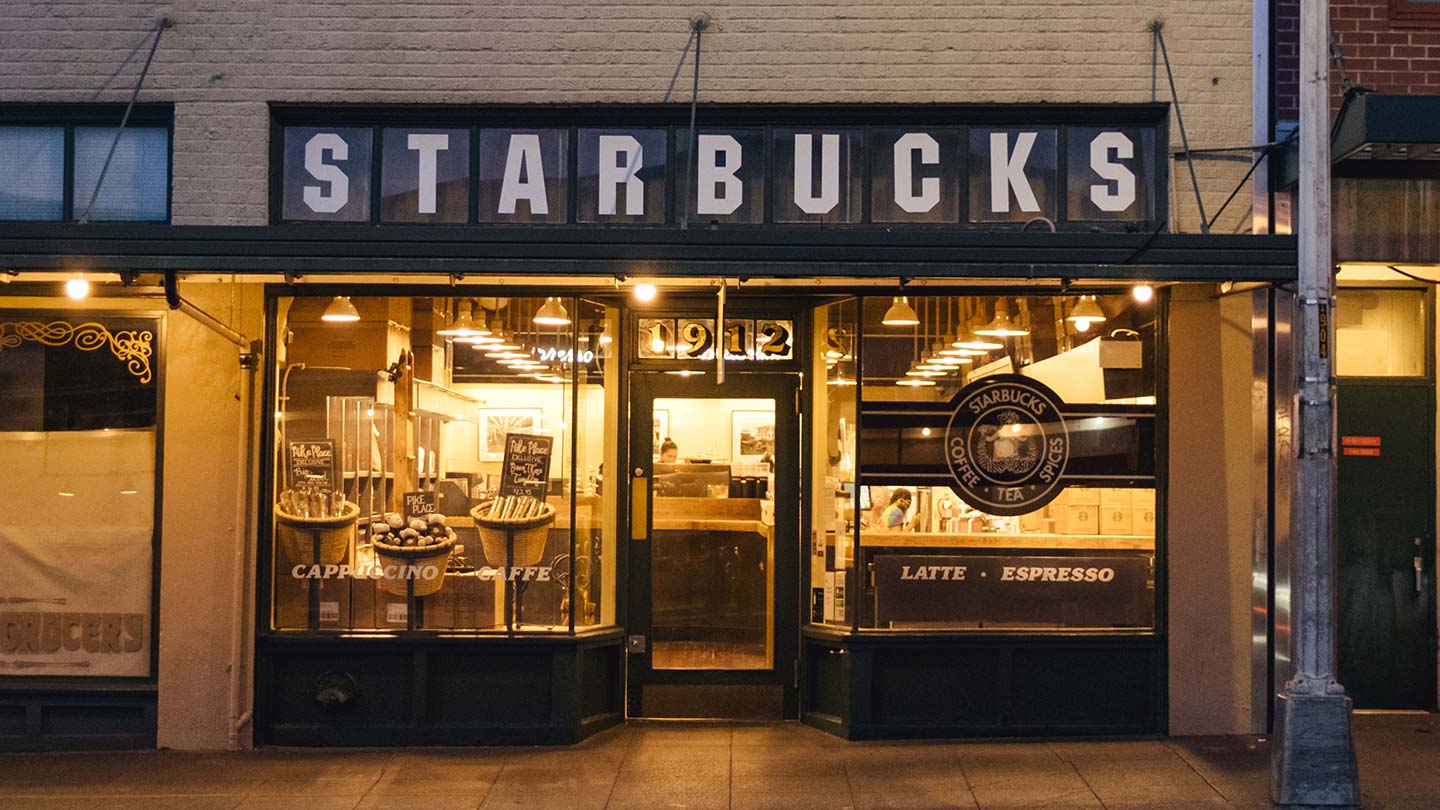
Starbucks Corporation (NASDAQ:SBUX) Neutral Rating and Financial Insights
- UBS maintains a Neutral rating on Starbucks Corporation (NASDAQ:SBUX), adjusting the price target from $105 to $90.
- Starbucks is expected to report a decrease in earnings per share to 48 cents from 68 cents in the same quarter last year, despite an increase in quarterly revenue to $8.83 billion.
- The company offers an annual dividend yield of 2.91%, with strategies for earning from Starbucks dividends detailed for investors.
Starbucks Corporation (NASDAQ:SBUX), a leading name in the global coffeehouse sector, is renowned for its premium coffee and diverse menu offerings. Competing with giants like Dunkin' and McDonald's, Starbucks remains a significant player in the coffee industry. On April 29, 2025, UBS updated its rating for Starbucks to Neutral, maintaining a hold action, with the stock priced at $84.09.
Starbucks is poised to unveil its second-quarter earnings results after the market closes on April 29. Analysts are forecasting earnings of 48 cents per share, a decrease from 68 cents per share in the corresponding period last year. Despite this anticipated decline, the company is projected to report an increase in quarterly revenue to $8.83 billion, up from $8.56 billion a year earlier.
UBS analyst Dennis Geiger has maintained a Neutral rating on Starbucks but revised the price target from $105 to $90. This adjustment mirrors a cautious stance on the stock's near-term performance. The current stock price stands at $83.43, marking a slight decrease of 0.56% or $0.47, with fluctuations between $83.20 and $84.58 during the trading day.
For those focused on dividends, Starbucks presents an annual dividend yield of 2.91%, translating to a quarterly dividend of 61 cents per share, or $2.44 annually. To generate $500 monthly from Starbucks dividends, an investment of approximately $206,310, or around 2,459 shares, is required. Conversely, a monthly income of $100 necessitates an investment of $41,279, or about 492 shares.
Starbucks boasts a market capitalization of roughly $94.77 billion, with a trading volume of 4,461,075 shares on the NASDAQ exchange. Over the past year, the stock has oscillated between a high of $117.46 and a low of $71.55, showcasing significant volatility.

Starbucks Corporation (NASDAQ:SBUX) Neutral Rating and Financial Insights
- UBS maintains a Neutral rating on Starbucks Corporation (NASDAQ:SBUX), adjusting the price target from $105 to $90.
- Starbucks is expected to report a decrease in earnings per share to 48 cents from 68 cents in the same quarter last year, despite an increase in quarterly revenue to $8.83 billion.
- The company offers an annual dividend yield of 2.91%, with strategies for earning from Starbucks dividends detailed for investors.
Starbucks Corporation (NASDAQ:SBUX), a leading name in the global coffeehouse sector, is renowned for its premium coffee and diverse menu offerings. Competing with giants like Dunkin' and McDonald's, Starbucks remains a significant player in the coffee industry. On April 29, 2025, UBS updated its rating for Starbucks to Neutral, maintaining a hold action, with the stock priced at $84.09.
Starbucks is poised to unveil its second-quarter earnings results after the market closes on April 29. Analysts are forecasting earnings of 48 cents per share, a decrease from 68 cents per share in the corresponding period last year. Despite this anticipated decline, the company is projected to report an increase in quarterly revenue to $8.83 billion, up from $8.56 billion a year earlier.
UBS analyst Dennis Geiger has maintained a Neutral rating on Starbucks but revised the price target from $105 to $90. This adjustment mirrors a cautious stance on the stock's near-term performance. The current stock price stands at $83.43, marking a slight decrease of 0.56% or $0.47, with fluctuations between $83.20 and $84.58 during the trading day.
For those focused on dividends, Starbucks presents an annual dividend yield of 2.91%, translating to a quarterly dividend of 61 cents per share, or $2.44 annually. To generate $500 monthly from Starbucks dividends, an investment of approximately $206,310, or around 2,459 shares, is required. Conversely, a monthly income of $100 necessitates an investment of $41,279, or about 492 shares.
Starbucks boasts a market capitalization of roughly $94.77 billion, with a trading volume of 4,461,075 shares on the NASDAQ exchange. Over the past year, the stock has oscillated between a high of $117.46 and a low of $71.55, showcasing significant volatility.







